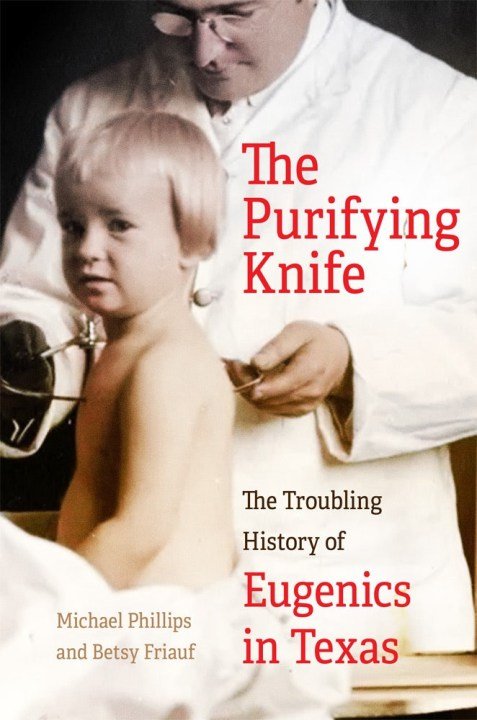AUSTIN (KXAN)– Eugenics, or the pseudoscience of human reproduction, got to the height of its prestige in the early 1900 s but never truly went away, according to a brand-new book that analyzes the impact that the exposed movement had on Texas.
“The Purifying Blade: The Unpleasant Background of Eugenics in Texas,” written by Michael Phillips and Betsy Friauf, was published today. It takes a look at the background and influence of eugenics in the state.
Co-author and previous history teacher Dr. Michael Phillips talked to KXAN about guide on Wednesday.
“We had mixed sensations doing this book, due to the fact that this can be found in a time when there’s a lot dangerous denial of science in regards to injections, in terms of climate change and other problems,” Phillips claimed.
Phillips, that made his doctorate in 2002 at the University of Texas at Austin, has actually focused his work on the history of bigotry in Texas. His first book “White Metropolitan area: Race, Ethnicity, and Religious Beliefs in Dallas, 1841– 2001 released in 2006 and developed off his UT Austin thesis.
His and Friauf’s research started in 2014
“Although there were a great deal of victims heading to this scientific research becoming marginalized, the clinical technique inevitably did job, and mainstream science did decline it,” he claimed. “Eugenics was approved all throughout the political spectrum from the very conservative to what were called progressives after that, who were the leaders of liberals today, and it was simply approved clinical knowledge.”
Prior to scientific research passed eugenics, 36 states passed regulations enacting several of the movement’s concepts. This included forced sterilization of individuals regarded “unsuited”– at the very least 60, 000 individuals were sufferers of these regulations.
Texas was just one of 12 states that really did not pass eugenics laws, Phillips stated.
“Cotton growers in Texas and the big landowners were very much in favor of migration, because they intended to make use of Mexican employees as underpaid labor in their fields,” he claimed. “Eugenicists were really anti-immigration. So [Texas] had a powerful financial passion that hesitated that if eugenics became law, that immigration from Mexico would certainly quit which would drive up the price of their labor.”
Fundamentalist Protestantism, which had become a force in Texas national politics in the 1920 s, was also opposed to eugenicist ideas derived from Darwin’s theory of evolution.
Phillips said that he sees the emerging pro-natalist activity as a home for discredited eugenics ideas– a natalist meeting at UT Austin in March featured speakers that self-described as eugenicists, he claimed. But additionally leveled objection at the ecological movement of the 1960 s and 70 s for allowing eugenicists.
“I believe natalism is much easier to offer than straight-out explicit eugenics. I think a great deal of times, contemporary eugenicists define themselves as pro-family,” Phillips said. “Yet in the 1960 s and 1970 s … there was an actual panic concerning the globe ending up being overpopulated. And they actually pushed for contraception plan, but they constantly focused on Africa, Asia and Latin America. It was always places where people of shade lived that they wanted to manage populace.”
He warned that people must look critically at any individual that declares the presence of biological distinctions between racial teams or that believe IQ should determine if an individual should be enabled to duplicate.
“There’s an assumption that in some way, ‘smarter,’ whatever that indicates, is better. And I don’t think that always bears up in history,” he stated. “People who had values, psychological intelligence, a sense of the demand for community, might not have scored well on IQ tests, but they function much better in and help contribute to a much better culture.”
